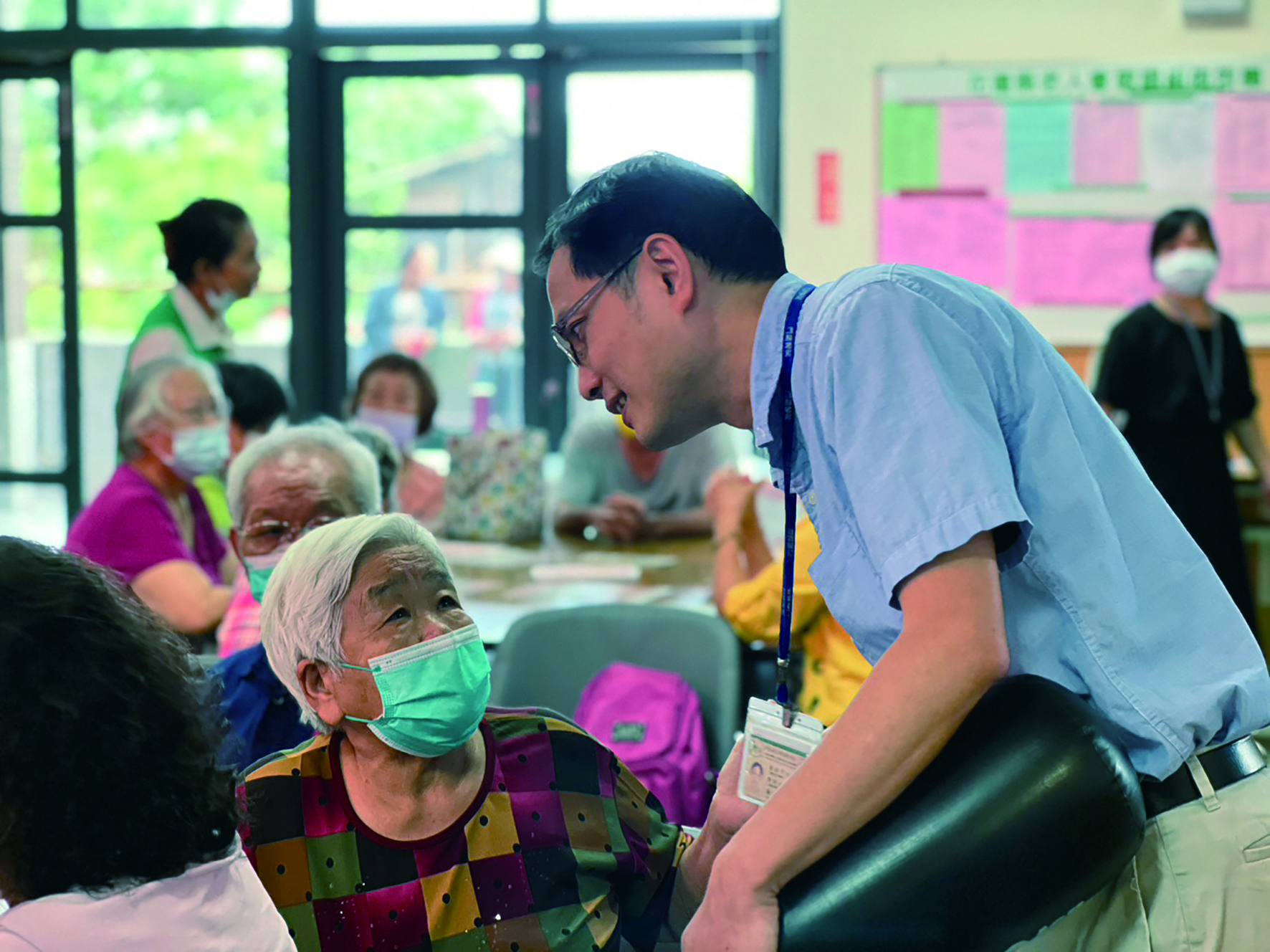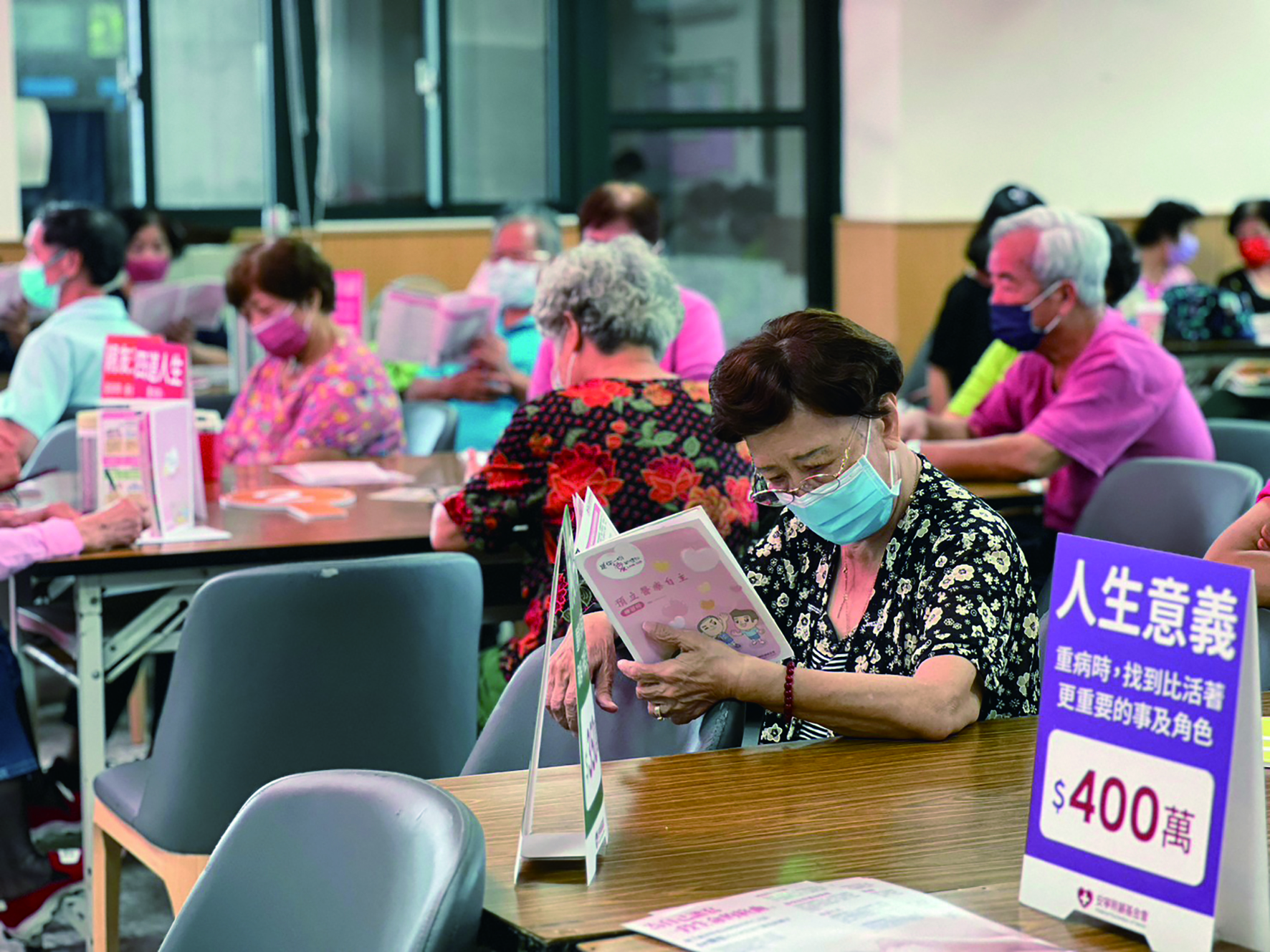 I am deeply grateful to the Taiwan Hospice Foundation for developing this set of educational board games on life and selflessly promoting them. With the grand vision set by Director Chuan-Hui Chou from the Medical Affairs Department of the Hualien Health Bureau, along with the strong execution capabilities of Ya-Ping and Chiung-Yi, I consider myself incredibly fortunate to have such amazing partners. Together, we have worked tirelessly to auction off the vital aspects of end-of-life contemplation in every session. So far, we have conducted 14 sessions with 543 participants, and there are many more sessions awaiting us.
I am deeply grateful to the Taiwan Hospice Foundation for developing this set of educational board games on life and selflessly promoting them. With the grand vision set by Director Chuan-Hui Chou from the Medical Affairs Department of the Hualien Health Bureau, along with the strong execution capabilities of Ya-Ping and Chiung-Yi, I consider myself incredibly fortunate to have such amazing partners. Together, we have worked tirelessly to auction off the vital aspects of end-of-life contemplation in every session. So far, we have conducted 14 sessions with 543 participants, and there are many more sessions awaiting us.
Throughout this journey, I have personally experienced great growth and learning, and I would like to share some brief reflections with everyone. Firstly, the game format, in which participants bid on various items, greatly fosters a sense of involvement. Despite the weighty nature of the topics, the activities are never dull. Once an item is bid on and missed on, it cannot be reclaimed, providing a tangible experience of gain and loss within the game.
Stimulating Exchange of Different Perspectives: Thoughts Clarified through Debate
Guiding the participants through explanations of the ten auction items poses a significant challenge in terms of both the presenter's wording and the participants' understanding. Maintaining the duration of the activity to around 1.5 hours is optimal because it allows everyone to fully engage with the game's thoughtprovoking aspects while also capturing the attention of older participants.
Feedback from the public has been invaluable, and has provided me with new learning opportunities after each session. For example, one participant shared, "Dignity means treating me as a human being," while another remarked, "Financial freedom means setting aside funds for medical expenses." These insights have taught me to adjust my language, making it more relatable and thought-provoking.
By incorporating celebrity events, social issues, and clinical case studies, I aim to assist everyone in their contemplation process. The activity serves as a large-scale dialogue platform where different viewpoints intersect. Some statements exchanged include: "Money is the most important thing," "Having loved ones around is enough, nothing else matters," "Maintaining self-sufficiency is essential for preserving dignity," and "As long as my inner peace is intact, I can comfortably accept any situation," and "Is euthanasia a good death?" By acknowledging the viewpoints of the elderly while also pointing out the contradictions in their original views helps clarify people’s thoughts.
Reflecting on a Good Death and the Value of Life without a Heavy Burden
Following the auction activity, it is crucial to allow each group to share their experiences and feelings. The facilitator then focuses on discussing the concept of a good death, introducing relevant legislation and addressing any uncertainties. 7 Participants come to realize that a good death does not necessarily require divine intervention, but that they can make the decisions for themselves. Finally, utilizing the practice workbook designed by the Taiwan Hospice Foundation, participants are encouraged to write down their thoughts, which can be used to promote discussions with family members when they return home as a way to naturally express their own values and autonomy.

Feedback from participants indicates that sharing different perspectives on life through the bidding game is enjoyable and helps lighten the topic’s weightiness. Additionally, having more options regarding end-of-life decisions and making abstract concepts tangible leads to deep contemplation, sometimes even evoking tears in participants. The survey results highlight the two greatest takeaways for participants to be: understanding what constitutes a good death, and contemplating the value of life. The choices made at the end of life influence discussions about life values, and vice versa. Looking ahead, my partners and I aim to identify items and vocabularies that resonate well with different ethnic groups, regions, and cultures in eastern Taiwan. We also plan to train instructors proficient in various ethnic languages and utilize this educational board game to spark discussions and contemplation on life issues in the eastern region.
